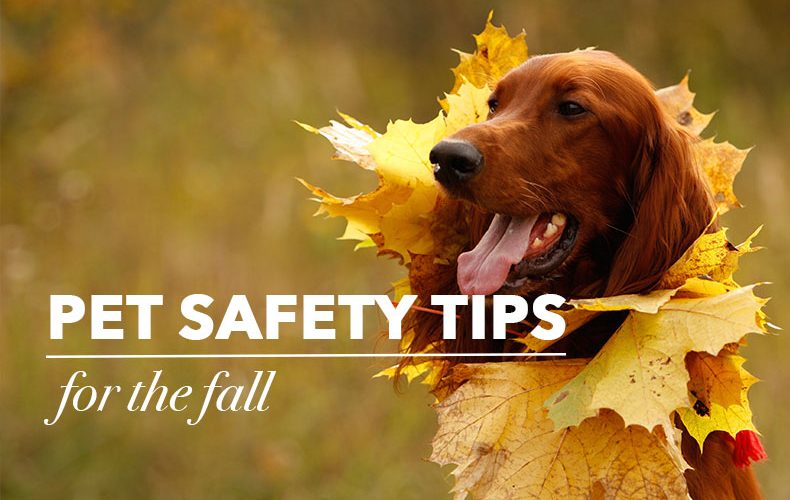
There’s nothing quite like the first few days of fall. The crisp, cool air and beautiful foliage get you excited for the changing of seasons, and we’re sure your pets are also welcoming a break from summer’s hot, sticky weather. But despite all of the pleasant perks the season ushers in, fall can also be a time of lurking dangers for our furry friends.
Here are some handy tips to keep your pets happy, safe and healthy during the autumn months.
Beware of rodenticides.
The use of rat and mouse poisons increases in the fall as rodents seek shelter from the cooler temperatures by attempting to move indoors. Rodenticides are highly toxic to pets and, if ingested, the results could be fatal. If you must use these products, please do so with extreme caution and put them out of paws’ reach.
Use caution with “cold weather poisons.”
Many people choose fall as the time to change their car’s engine coolant. Ethylene glycol-based coolants are highly toxic, so any spills should be cleaned up immediately. Consider switching to propylene glycol-based coolants—though they aren’t completely nontoxic, they are much less toxic than other engine coolants.
Keep an eye on your school supplies, and make sure they are safely tucked away.
Fall is back-to-school time, and for some of you that can mean stocking up on supplies like glue sticks, pencils and magic markers. Although these items are not highly toxic to pets, gastrointestinal upset or blockage can occur if they are ingested. Be sure to keep your school supplies up and away from your pet’s reach.
Be on the lookout for—and steer clear of—mushrooms.
Fall is one of the high seasons for mushrooms. While 99% of mushrooms have little or no toxicity, the 1% that are highly toxic can cause life-threatening problems in pets. Since most toxic mushrooms are difficult to distinguish from nontoxic ones, the best way to prevent pets from ingesting these poisonous plants is to keep them away from areas where any mushrooms are growing. Contact your veterinarian or the ASPCA Animal Poison Control Center at (888) 426-4435 immediately if you witness your pet eating a wild mushroom.
Watch out for wildlife.
Autumn is the season when snakes preparing for hibernation—meaning they’re more out in the open than usual. This increases the possibility of bites in pets who are unlucky enough to find themselves in the wrong place at the wrong time. Pet parents should determine what kinds of venomous snakes may be lurking in their environment and where those snakes are most likely to be found, then avoid those areas to keep pets out of harm’s way.
~At Heart Arrow We Love Pets~
Thanks to ASPCA for portions of this article

